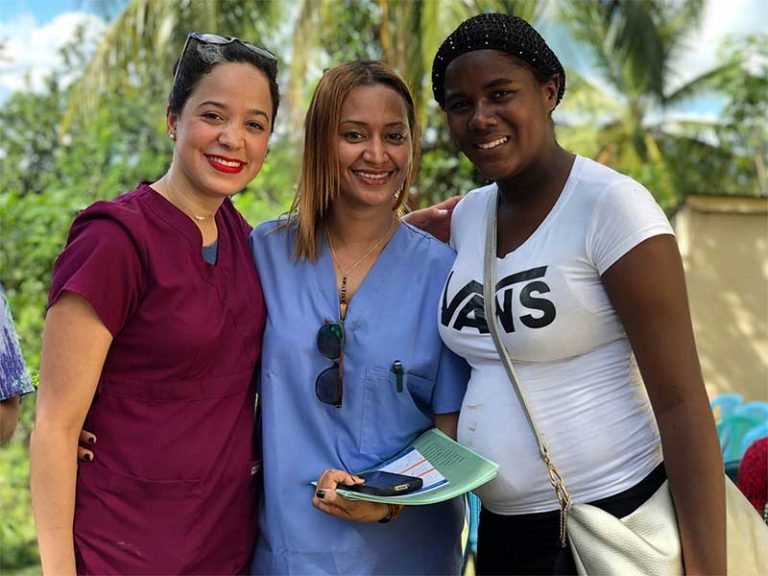Unspoken Smiles Fellows | Dominican Republic 2019
Per the United Nations, “only 50 percent of women of working age are in the labor force, compared to 77 per cent of men. Women are found to remain concentrated in low paid jobs and earn on average between 70 and 90 per cent of what men earn.”[1]
Countering this trend is The Unspoken Smiles Foundation which, with its Unspoken Smiles Fellowship, is empowering women throughout the developing world. This program, open to women ages 18-35, trains them to become dental assistants through a condensed, five week-long courses as well as a two month-long externship at a local dental office. Supervised and trained by licensed professionals, this world-class curriculum educates the fellows in clinical, radiographic and administrative procedures, as well as how to operate the various instruments and equipment found in modern dental offices. But more than simple instruction, each fellow is assigned a Dentist and Dental Hygienist who functions as a mentor and provides personal and professional guidance as they navigate their new career. The benefits of this are many because not only are these women attaining a higher degree of educational and economic opportunity, but the denizens of these developing countries, who often have no access to dental care, are able to receive treatment on a consistent, local basis.
Beyond providing educational opportunities, the fellowship is enabling these women to overcome the limits of gender stratification because, according to a recent study by the Global Partnership for Education (GPE), “poverty is the biggest barrier to gender equality.”[2]And this is why programs like the Unspoken Smiles Fellowship are the key to sustainable parity, because, with economic independence, women begin to overcome the subjugation that keeps them second-class citizens. But such independence is only achieved through an income that allows for an adequate standard of living, which, upon graduation, is precisely what the fellows can expect.
Further consideration of this empowerment proves that it is not only good for the individual, but for the country as well. In their 2012 report, the Organization for Economic Cooperation and Development (OECD) states that “greater gender equality in economic opportunities contributes to stronger and more sustainable economic growth.”[3] Plainly, an expanded and inclusive workforce is critical to innovation and competition amongst businesses while generating more tax revenue for governments. And though this growth is essential for the developing world, it is important to acknowledge the social effects of this economic and educational causality, as the same OECD study notes that such equality “also affects other societal outcomes such as child mortality, fertility, personal health outcomes, and greater investment in the education and health of future generations.”
Of course, this fellowship is only addressing one facet of a much larger problem. So long as there are cultural, systemic and institutional barriers to gender equality, progress can only go so far. However, it is through the efforts of these concerned individuals that the process begins and a path towards a better, more egalitarian tomorrow is forged.
[1] “Women worldwide live longer, healthier lives with better education, says new UN report.” UN News Centre. United Nations, 20 Oct. 2015. Web. 7 Mar. 2017.
[2] “Factsheet: Girls’ Education and Gender Equality.” United Nations Girls Education Initiative. The Global Partnership for Education, Sept. 2016. Web. 7 Mar. 2017. <http://www.ungei.org/infobycountry/files/2016-09-girls-education-and-gender-equality-factsheet.pdf>.
[3] Organization for Economic Cooperation and Development (OECD), Gender Equality in Education, Employment and Entrepreneurship: Final Report to the MCM 2012. http://www.oecd.org/employment/50423364.pdf. p. 17.
